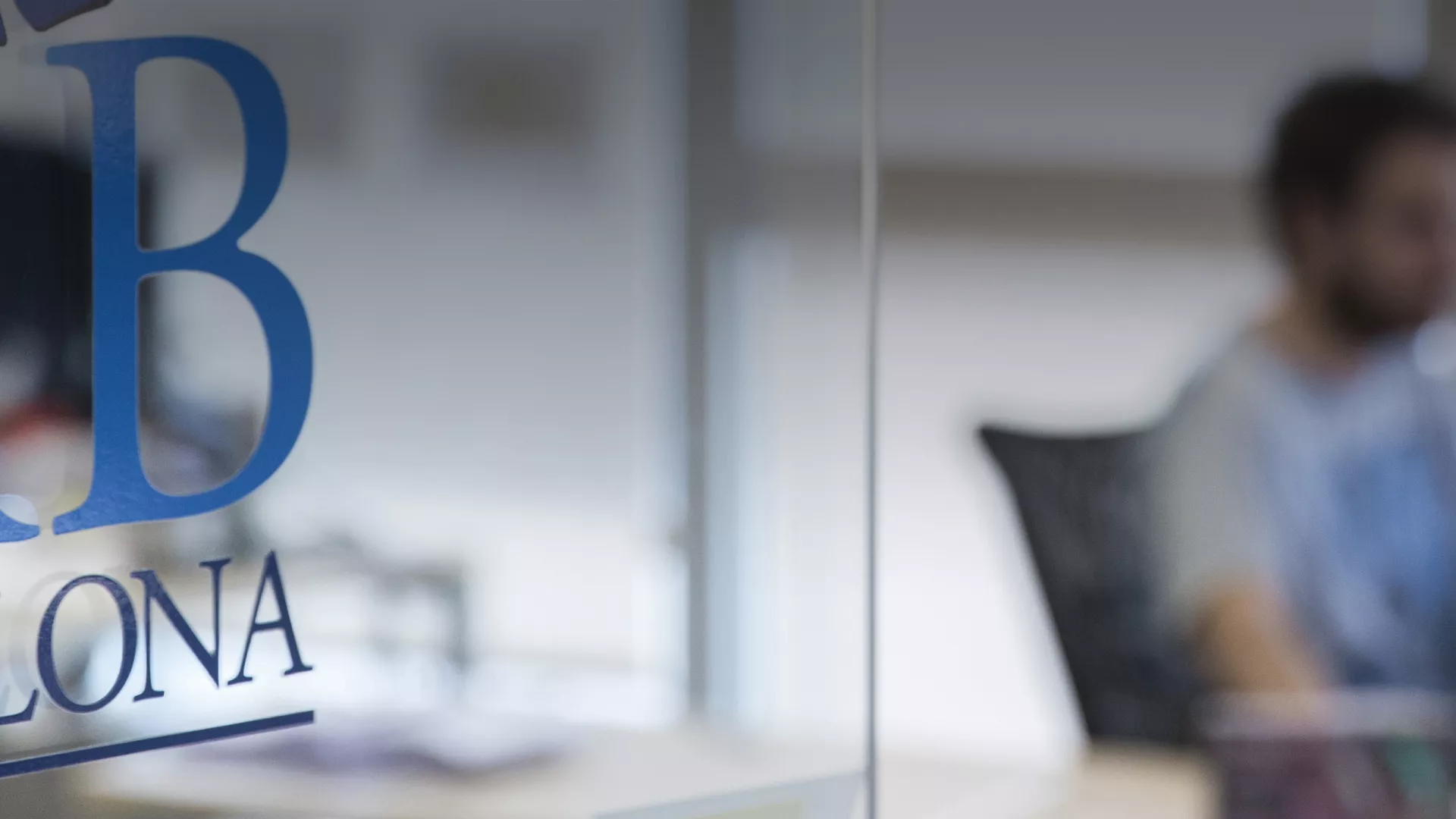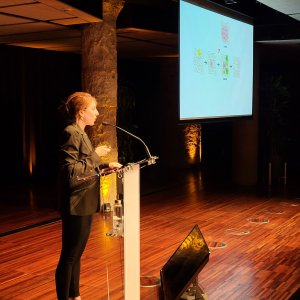IRB Barcelona boasts an amazing PhD community comprising 90 young scientists from around the world (14 countries). These talented individuals have decided to dive into a challenging 4-year journey in pursuit of knowledge and personal growth. A PhD is a huge undertaking emotionally, mentally and financially. Along this journey, PhD students experience a considerable degree of mental stress; however, mental health issues during doctoral studies are typically taboo, as if acknowledging them reflects weakness.
To get an idea of the extent of the problem, PhD students experience alarmingly high rates of depression, anxiety and stress. As graduate students, their risk of experiencing mental health issues is 6 times greater than for the general population1. Almost half of graduate students are depressed2, many reporting “more-than-average” or “tremendous” levels of stress connected to education, work, and financial concerns related to PhD studies3.
In recognition of the pressures experienced by its PhD community, IRB Barcelona backed the initiative of the Student Council to launch the first of a series of training sessions devoted to the mental health of the PhD community.
On 9 February, a virtual panel addressing “Mental Health for PhD students” sought to remove the stigma around mental health with help from four experts from varying backgrounds (Anna Gutiérrez, Chris Barrett, Ramón Nogueras, and Anna Houstecka). The panel’s goal was to provide the PhD community with actionable advice on how to cope with the stress, depression and anxiety so common to this collective. Also, techniques to deal with the fear of failure and the imposter syndrome were discussed.
Adrià Fernández, a PhD student in the Structural Bioinformatics and Network Biology lab and member of the Student Council says, “PhD studies are done in a highly competitive environment and students wrongly associate feelings of anxiety and depression with weakness. But stress is a normal response to pressure. The first step is to identify the problems and have the tools to learn what to do. In this context, this first panel session on PhD mental health is a step in the right direction and aims to arm our PhD community with resources to enable them to cope better.”
All this is closely linked to one of the topics covered by the panel, the so-called Impostor Syndrome.
Hanna Kranas, a PhD student in the Biomedical Genomics lab and member of the Student Council, says, “Impostor syndrome is where a person experiences a feeling of inadequacy. They feel that they are a “fraud”, that they are tricking people into believing that they are better than they really are.”
Adrià adds, “During the PhD, one of the many triggers of Impostor syndrome is when you realise that you are not going to fulfil all of the expectations that you had at the beginning.”
PhD studies are often bumpy, especially in research as those vital experiments may not give the expected results, thus frustrating the ambitions of making a breakthrough and publishing those much-valued research papers. So negative results from experiments are greatly feared among the PhD community.
In the context of feeling failure and the sensation of having wasted time, Valentina Ramponi, PhD student in the Cellular Plasticity and Disease lab and member of the Student Council makes an interesting comment on the value of experiments giving negative results and the need to change the current system. “Until very recently, negative results have never been published. However, in the last two years, you can publish if an animal trial didn’t work and this is very good also from an ethical point of view. Now there is also a new journal that publishes only negative results. In my opinion, this is amazing because it’s the real meaning of science,” she says. Indeed, these comments lead one to reflect that understanding why something failed can also contribute new knowledge to a given field. Valentina’s comment indicates that this reflection has been overlooked for many years.
By definition of their respective professions, the two psychotherapists, Anna Gutiérrez and Chris Barratt, and psychologist, Ramón Nogueras, on the panel session have expertise in handling stress and in providing coping strategies. However, the fourth member of the panel, Anna Houstecka, breaks away from this profile and is an interesting case in point. After experiencing stress while doing her PhD in Economics in Barcelona, Anna decided to set up the PeacehD website to provide support to the PhD community.
“My web project started to be formed spring last year when I came up with the name PeacehD and began thinking about all the ingredients of my own journey and how to best provide others the opportunity to improve their PhD experience”. With more time available under the lockdown conditions caused by the Covid-19 pandemic and while simultaneously undertaking a postdoc at the Institute for Employment Research in Germany, Anna hatched the PeacehD initiative, which was launched in December 2020. Her website is divided into four main sections the PhD experience, support from professionals, blog, and resources. “All in all, the website is there to create a community of people who struggle with the same issues in their PhD, give them information, connect them, and offer them various options to deal with common issues,” she explains.
Anna herself is not ashamed to say that she sought therapy during the first year of her PhD and she thinks access to personalised tools is crucial to navigate the PhD journey. “The therapist can find the best ways to change those negative patterns that may lead to high levels of anxiety or depression,” she says.
The need of PhD students for dedicated support is perhaps reflected by the fact that since the launch of PeacehD in December, 26 people have already signed up to be in a support group and 30 have replied to questionnaires. The website has had 140 visitors overall and it has 211 followers on Twitter.
Apart from removing any shame attached to feelings of stress or anxiety and to talking about them and looking for solutions, Anna says, “I want to encourage the students to make their mental health a priority. It takes effort but it´s absolutely worth it!”
This first panel organised by the Student Council intends to be a step in this direction by providing a safe environment in which mental health issues can be openly acknowledged and discussed and in which the members of our talented PhD community can learn vital life skills that will serve them during their PhD journey and beyond.
- Evans, T., Bira, L., Gastelum, J. et al. Evidence for a mental health crisis in graduate education. Nat Biotechnol 36, 282–284 (2018). https://doi.org/10.1038/nbt.4089
- Graduate Student Happiness & Well-Being Report (2014). http://ga.berkeley.edu/wp-content/uploads/2015/04/wellbeingreport_summary_2014.pdf
- Smith, E. & Brooks, Z. Graduate student mental health 2015. University of Arizona, Graduate & Professional Student Council (2015) http://nagps.org/wordpress/wp-content/uploads/2015/06/NAGPS_Institute_mental_health_survey_report_2015.pdf




